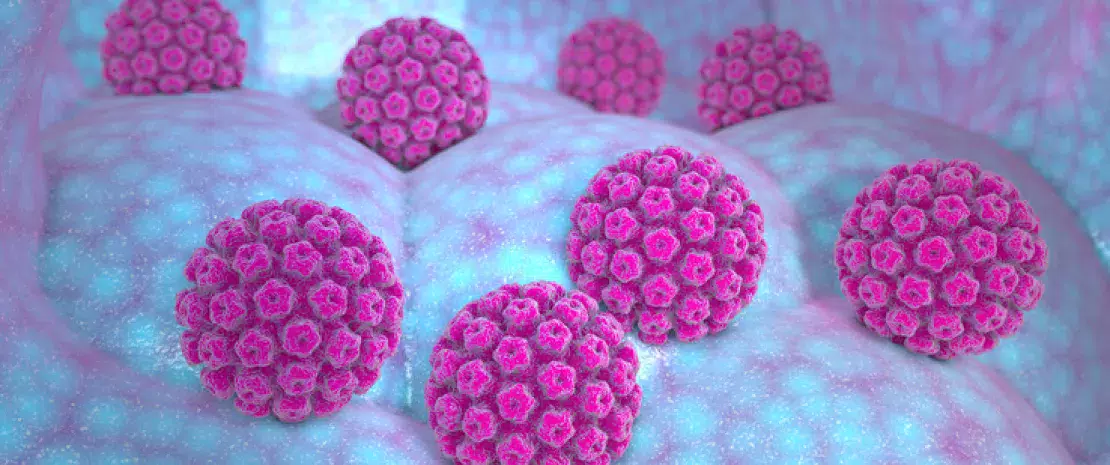Vaginal microbiota: a marker for papillomavirus progression?
The presence of Gardnerella in the cervicovaginal microbiota of women with high-risk oncogenic papillomavirus may indicate an increase in microbial diversity and predict progression towards precancerous lesions.
Lay public section
Find here your dedicated section
Sources
This article is based on scientific information

About this article
42% Fewer than 1 in 2 women say that their doctor has ever explained to them how to maintain a balanced vaginal microbiota or educated on the importance of preserving as much as possible the balance of their vaginal microbiota
The human papillomavirus (HPV) is the most common sexually transmitted infectious agent. While for most women HPV clears up quickly, a small fraction develops persistent infection with a high risk of progression towards precancerous lesions and cervical cancer. Certain environmental (smoking, hormonal contraception) and clinical (genetics, immune system, parity) factors have been linked to the progression or elimination of HPV. The cervicovaginal microbiota (CVM) has been shown to be involved in the prevalence of the disease but its influence on whether HPV is eliminated or progresses towards moderate to severe dysplasia ( (sidenote: Cervical intraepithelial neoplasia (CIN). CIN2+ involves Grade II precancerous lesions or moderate dysplasia, while CIN3+ entails high-grade precancerous lesions or severe dysplasia ) ) is not yet known.
Lactobacillus iners: a sign of HPV clearance
Taking advantage of a clinical trial in Costa Rica evaluating an HPV vaccine, researchers1 analyzed the microbial composition of cervical samples from the study’s placebo group. They studied the microbiota of 273 women with high-risk oncogenic HPV (HR-HPV) and assessed the changes one year later. At the first visit (V1), virus clearance was correlated with the presence of L. iners. On the other hand, progression of the disease was correlated with the presence of Gardnerella at V1 and with that of a polymicrobial vaginal community at the second visit (V2).
Gardnerella: a key role in the progression of HPV
The researchers then modelled the course of the disease by combining clinical features (age, smoking, virus genotype, etc.) with data on the structure of the CVM obtained at V1 and V2. Their bioinformatics analysis suggests that Gardnerella is involved in the development of precancerous lesions. However, instead of a direct role, Gardnerella is thought to induce an increase in bacterial diversity which in turn leads to the progression of infection towards precancerous lesions.
A strategy to prevent HPV progression?
A separate team had published similar results a few weeks earlier2. Both studies hypothesize that a vaginal dysbiosis may facilitate the progression of oncogenic HPV towards precancerous lesions. They also point out that the CVM contains biomarkers which help identify patients at risk. If future studies confirm a central role for the CVM in the evolution of HPV infection, therapeutic strategies to prevent the progression of the disease based on modulating the CVM could be contemplated.









